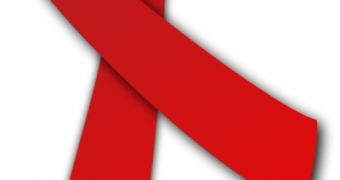The global financial crisis will also take its toll on human lives, if AIDS prevention funds are reduced by governments trying to maintain a positive economic balance, the United Nations said last week, in a news conference on HIV Awareness Day, which was on Monday. Sub-Saharan Africa will be mostly affected by lack of funding, as it is home to the most AIDS-infected people in the world. Estimates published by the UN in late 2007 placed their number at about 33 million.
More than 25 million people worldwide were killed by the Human Immunodeficiency Virus since it was first identified in 1981, with an estimated 2.7 million contracting HIV yearly. African countries, because of their extreme poverty, are most prone to offer the retrovirus with the perfect breeding ground, as the population keeps increasing, while the infrastructure that is supposed to support all the people slowly decays and crumbles.
"What we'll find in the next four or five years is a resurgence in new incident infections and we won't be able to scale up the treatment that is clearly going to be needed as more and more people become symptomatic and need access to drugs," said UNAIDS senior official Paul De Lay, during the conference. "We are all expecting that the roll-out of a new category of drugs, the integrase inhibitors, will continue to improve patients' response and make it easier and easier to take the drug regimens."
However, the official emphasized the fact that current AIDS-oriented programs only reached 4 out of an estimated 9.7 million people in desperate need of medical assistance, living in some of the poorest regions in the world. He urged developed nations in particular, to expand their aid and set aside the economic turmoil for a while. Human life was most important, De Lay added.
As researches progress, new classes and types of HIV/AIDS drugs will become increasingly available, even in the most remote corners of the world. Already, medication such as Merck and Co's Isentress, or Gilead Sciences' Elvitegravir are starting to reach those in dire need of assistance. However, the UN draws attention to the fact that it's only through continuous funding that such endeavors are possible in Africa.

 14 DAY TRIAL //
14 DAY TRIAL //